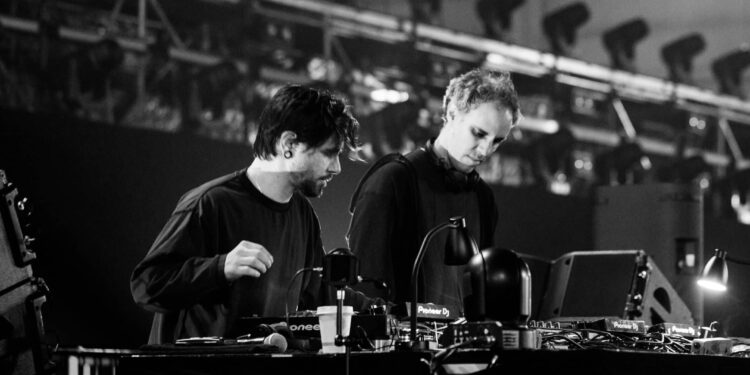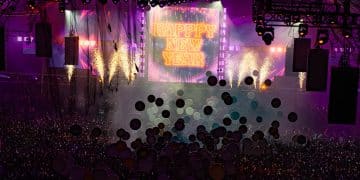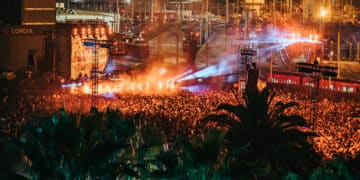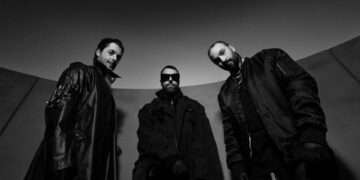Spinscott and Paradox gave underground bass heads an education on jungle at The Black Box in Denver.
The average electronic music fan likely associates the word “jungle” with a bygone era of dance music. Spinscott and Paradox demonstrated that the style still has room for evolution when they headlined Recon DNB’s Live Jungle Showcase at The Black Box in Denver on Saturday.
“I’m really excited about making sure that everyone’s aware of the history of this music,” said Spinscott over palpitating bursts of sub bass in the Black Box green room. “I want them to know that it has a history — but it has a future as well.”
Spinscott would know. He discovered jungle thanks to his sister, a ‘90s raver who had brought home a mixtape by a UK-born DJ called Mastervibe in 1995. Having played the drums since he was only four years old, Spinscott found himself drawn to the wide variety of syncopated drum samples that define the genre.
Nearly two decades later, he bought an Akai MPC5000 drum machine and decided to experiment with “finger drumming” by programming single drum hit samples to the cues. He uploaded a video demonstration and the online response floored him. By 2014, interest in his project vaulted him into worldwide tours.
One such run of dates brought him to The Black Box for the Live Jungle Showcase. The crowd had begun to swell long before he took the stage, filling the room by the time Recon residents Solid, Shoebox, Sinistarr, John Glist, DiS_1, Goreteks, and Darkstar tagged the opening set. Sprinkled in with the dressed-down, nondescript jungle and drum and bass stalwarts were younger music lovers donning ‘90s rave-inspired garb.
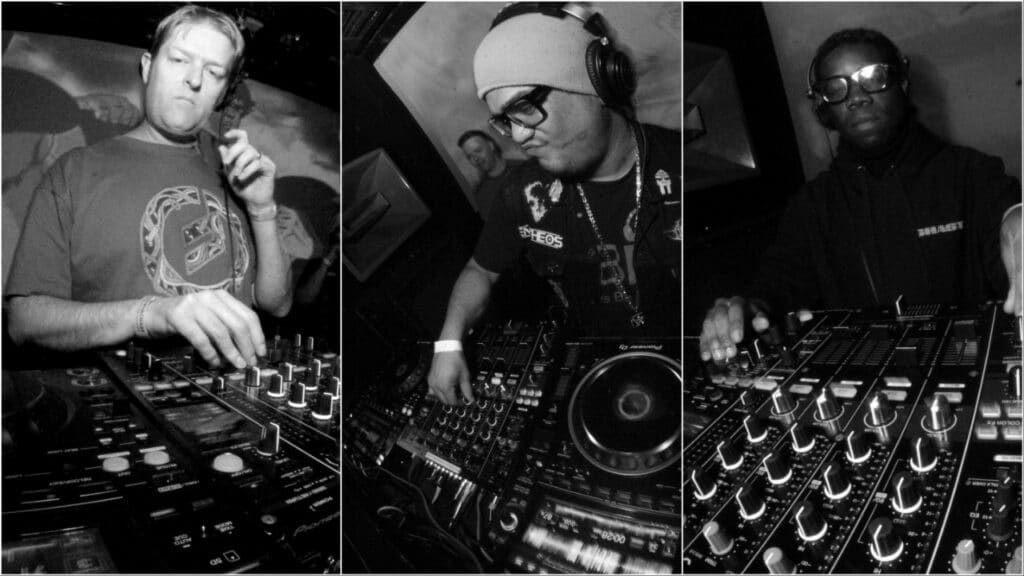
“We have been seeing a lot of new faces the past year or so,” said Solid (real name Joe Hernandez). “Not sure if it’s dubstep kids getting into drum and bass or if it’s actually EDM kids getting a little older and looking for music with more substance.”
After a raucous live set by Seattle junglist QUAAD, Spinscott appeared on the stage-right end of the DJ table. The appeal of his act was obvious from the moment he first laid hands on his MPC.
Frenetically tapping at the device throughout the duration of his performance gave him a stage presence that starkly contrasts to the image of the stoic selector you might associate with jungle acts. It wasn’t lost on the crowd. His every movement triggered not only a drum hit, bass note, or sample, but an uproar of applause as well.
Spinscott seldom releases recorded music, and there’s a method to what might seem like madness to some in today’s electronic music market. “I do a lot of studio work, but I don’t release a lot of it,” he explained. “For me, it’s all about strategically controlling the content.”
“My father was a DJ in the ‘70s, ‘80s, and ‘90s. Not everyone had access to all the records, so there was a barrier to entry, and different DJs could have a competitive advantage if they had the right records,” he continued. “Digital is great because it makes everything accessible, which is a good thing, but what’s not so great is once you release something digitally it’s almost like it’s public domain, and you end up hearing a lot of the same stuff. My way around that is to have the bulk of my music be in live form.”
Indeed, fans who wanted to hear cuts like “Murder” or “Precision” must watch YouTube videos of his performances online lest they seek him out at gatherings like the Live Jungle Showcase. He even performed his mix of the viral “I Can’t Accept Drum and Bass” audio clip, which had previously earned him a shout-out from broadcaster Amol Rajan himself.
Then, as his set wrapped up, self-proclaimed “breakbeater” Paradox (real name Dev Pandya) entered stage left. Outspoken and direct, he got on the mic (for the first of many times that night) to acknowledge that Spinscott was a tough act to follow. For the vast majority in attendance, however, his jungle credentials spoke for themselves.

Pandya was present for the emergence of jungle itself, having specialized in the breakbeat hardcore at its roots since the late ‘80s. He performed with a now ancient Commodore Amiga 1200 running OctaMED, as he has for decades. As he arranged drum loops and basslines in real time, the 1989 tracker’s antiquated interface was projected as set visuals behind him. They eerily matched the geometric designs adorning the venue.
In addition to the early years of jungle, Pandya also remembers when the genre gave rise to drum and bass. In the green room, he recounted: “This word ‘drum and bass,’ nobody was saying it, and then all of a sudden, during DJ Hype’s set, my mate turned to me and said, ‘Have you heard what they’re calling jungle?’ I said, ‘What’s that?’ And he said, ‘Drum and bass.’ I said, ‘What?!’ And he said, ‘That’s just like rock and roll — ah, it will never catch on.’ Fast forward, and that’s the name that has taken over everything.”
It can be hard for those less steeped in breakbeat to tell the difference between the two. To make matters worse, genres definitions tend to be fluid and subject to interpretation. “Jungle has a lot more soul, and a lot more reggae roots,” Pandya explained. “You can make jungle that doesn’t sound like it has intentional dancehall or reggae roots but still give it that soul, but modern drum and bass doesn’t have that. It’s, dare I say it, software, blare-dinking, envelope-shaping music now.”
Pandya recently obtained a US visa good through 2026 and is thinking of embarking on a Stateside tour in 2025. The timing certainly bodes well as drum and bass is having something of a moment in the US. Some of the new generation of fans will inevitably seek out the movement’s most authentic underground kernel, potentially leading them to jungle artists like him.
The UK had a jungle renaissance of its own in recent years, championed by artists like Denham Audio and Dead Man’s Chest. While Pandya applauds them, he recommends that the jungle curious do their due diligence by exploring the discography of seminal labels like Reinforced Records and Moving Shadow.
He does, however, speak highly of the Rupture parties that have taken place in London since 2006. “When you go, you feel as if you could be stepping into a club in 1992 or 1993,” he glows. “Well, no you’re not, you’re in London in 2024.”
The dancefloor remained full and lively through the end of Paradox’s set. Passion was palpable throughout the room, beaming from the faces of all who remained. Looking on, you couldn’t help but feel optimistic for the future of junglists in the Bass Capital of Denver.



